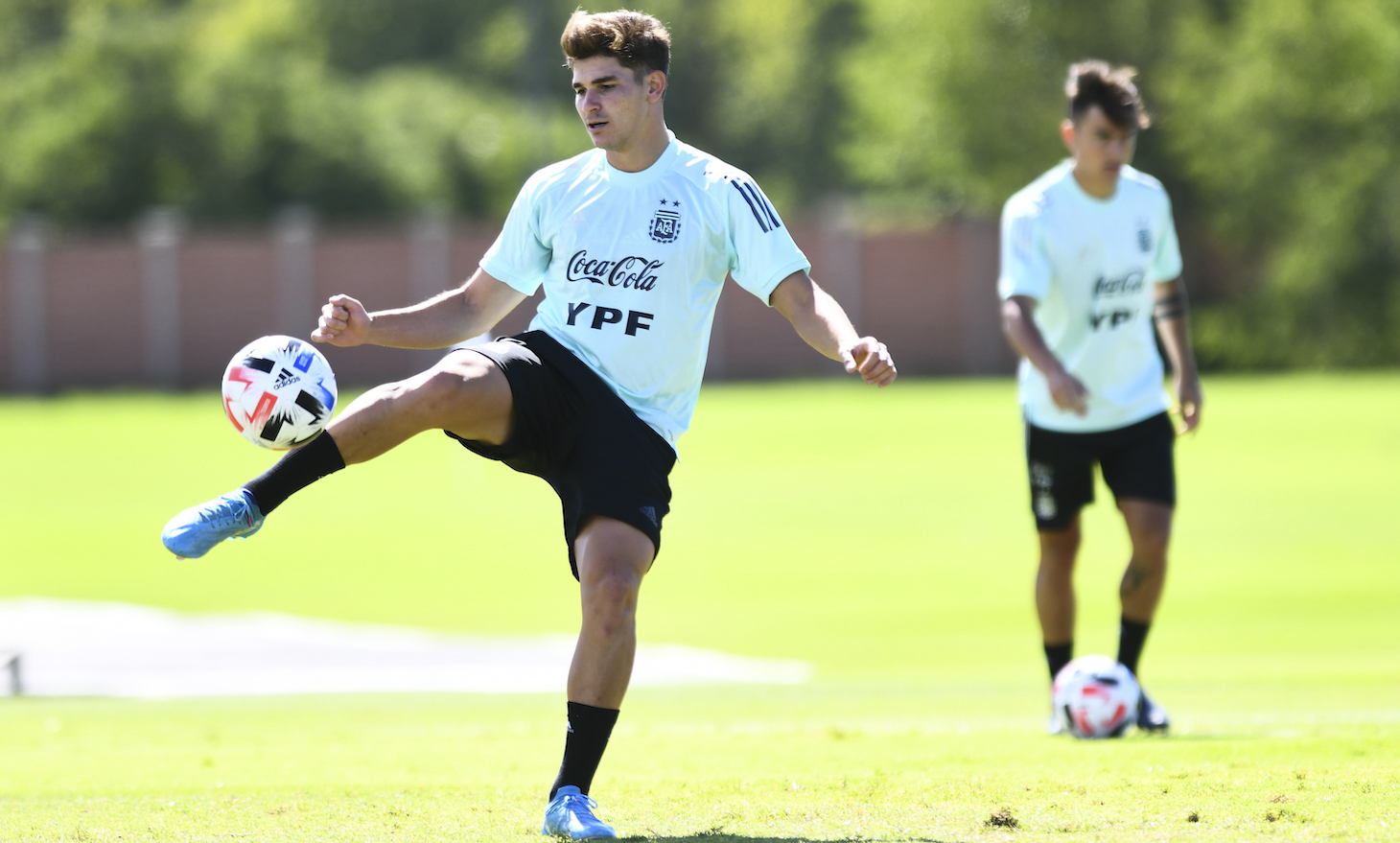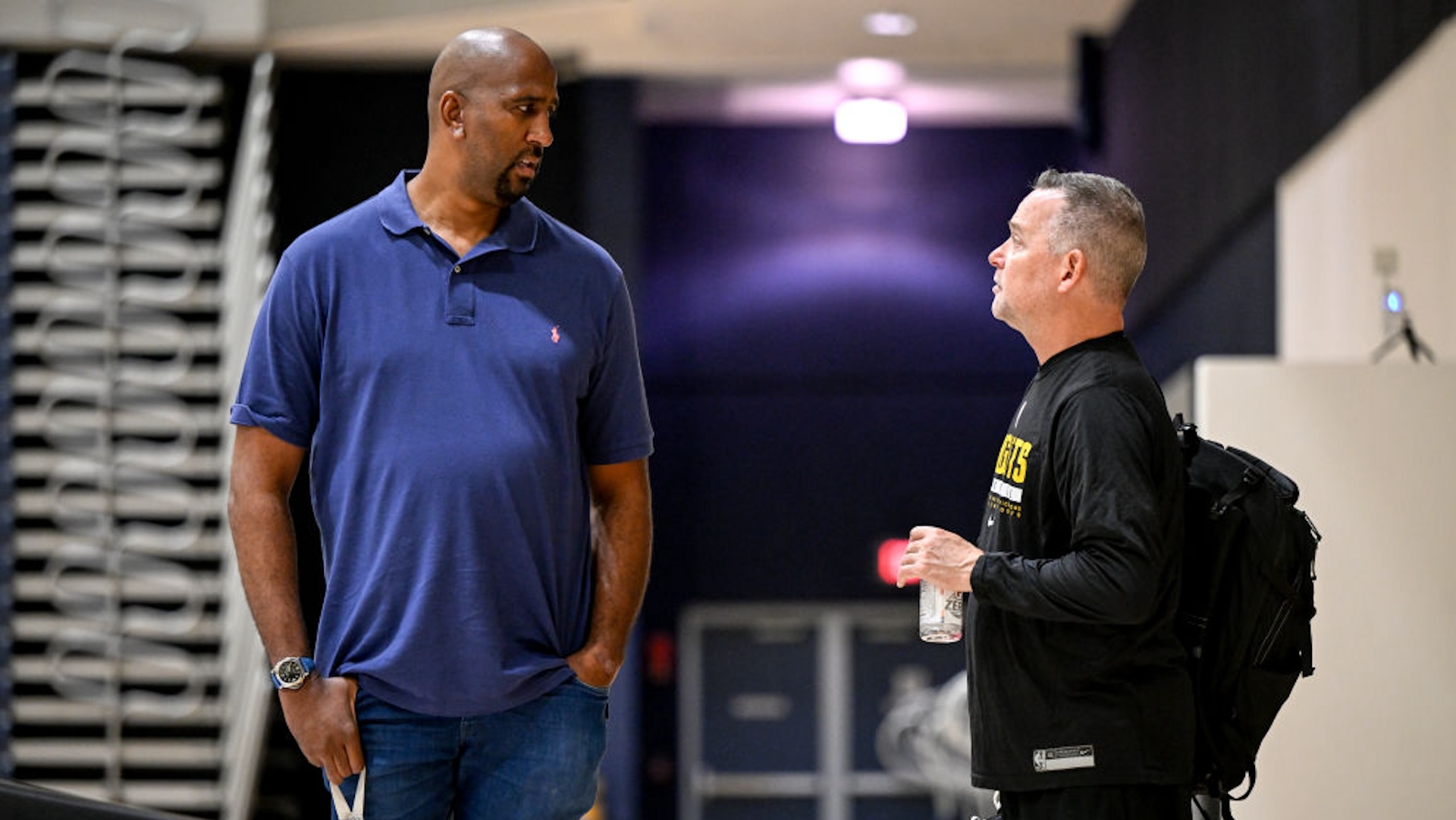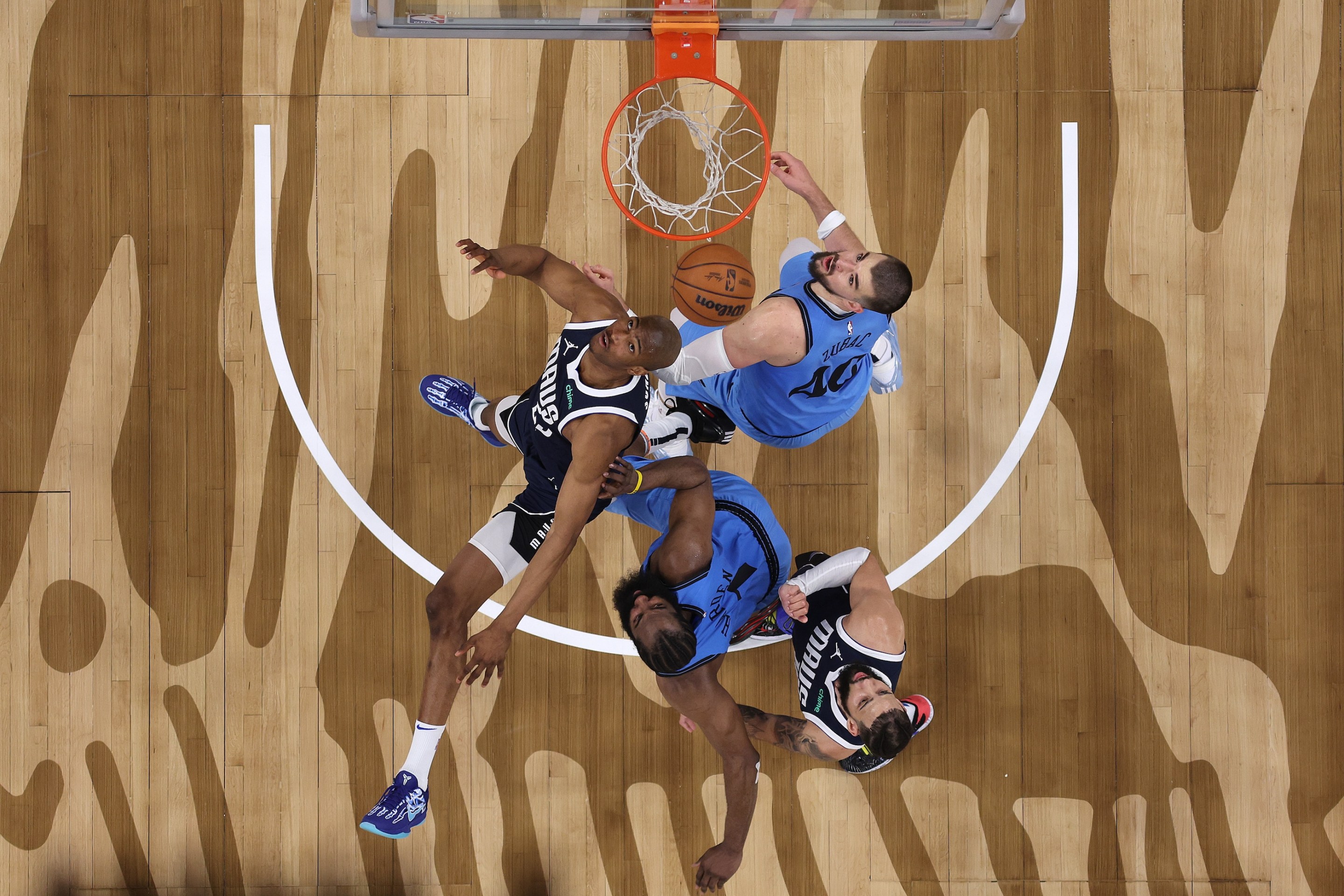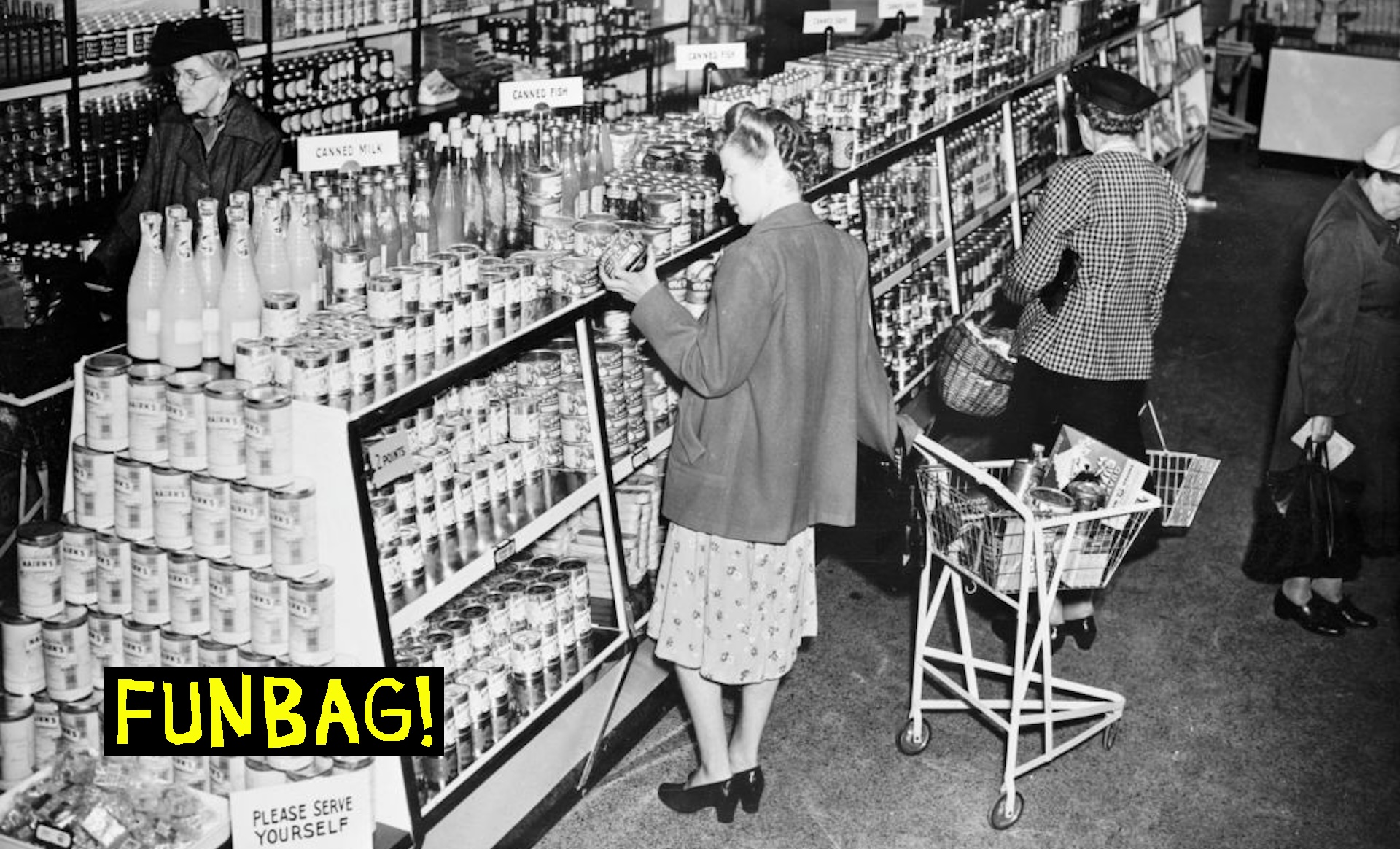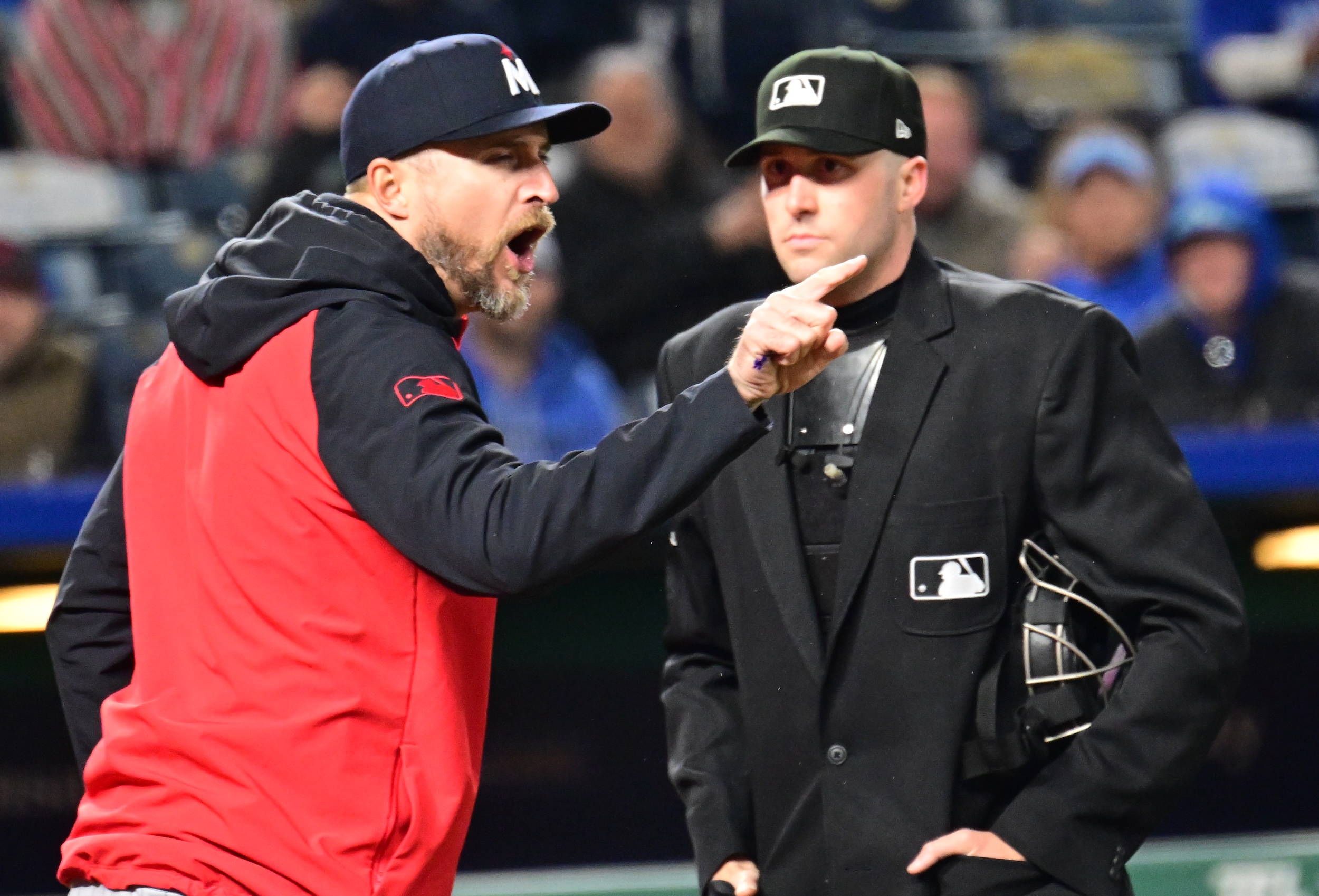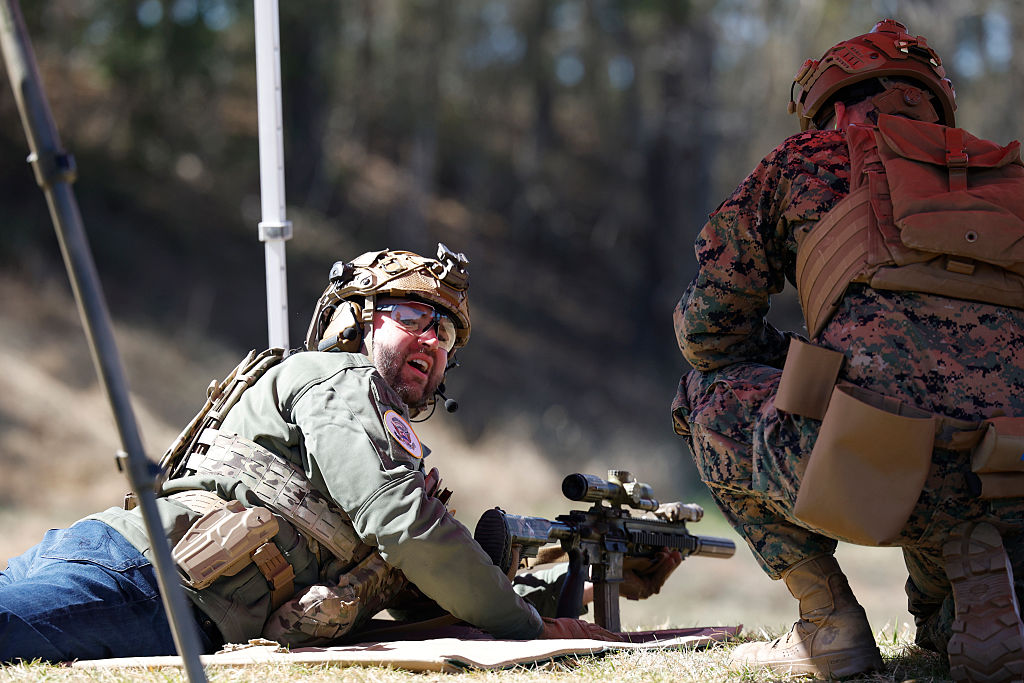If you have even a passing familiarity with South American club soccer, then you know the name Julián Álvarez. The River Plate forward experienced a full-blown eruption during the course of 2021, going from a promising but somewhat late-blooming prospect to the crown jewel of domestic Argentine soccer. Naturally, because of his talent, youth, and production, it was only a matter of time before one of the giants of Europe snapped him up. And indeed, his big move came on Monday's transfer deadline day, when Álvarez celebrated his brand new transfer to Manchester City on what happened to be his 22nd birthday. It would all be very exciting, if not for the fact that the destination and terms of that move threaten to place a heavy roof over what has been his explosive ascent.
If you aren't too familiar with Álvarez, this long and thankfully not too atrociously soundtracked highlight compilation should help a little:
Álvarez's game is founded upon two related traits: energy and faith. The Argie works incredibly hard on and off the ball, and does so with total conviction that his next effort will end in something good. He is always on the move. When the opposition has the ball, he is a committed defender and a hard presser. When his team has it, he constantly darts around looking for ways to contribute to the action, whether that means dropping into pockets of space to offer a passing option, or if it requires long sprints ahead to push back or burst through the back line. In the final third, he never stops hunting for little lanes and windows where he can take a shot or provoke a pass or stumble upon a rebound. Most of those exertions go unrewarded when the pass doesn't come or the ball bounces there instead of here, but Álvarez is never discouraged. Ever the optimist, he just keeps flying around.
Though he's long been considered one of the brightest young talents in Argentina, it wasn't until the 2021 season that Álvarez really blew up. Prior to that campaign, Álvarez had only scored a single league goal in 12 appearances across two seasons. However, with River manager Marcelo Gallardo fully committing to him, especially at the center forward position (the versatile player more often played on the right wing in previous years), Álvarez's performances, confidence, and numbers soared. In 22 matches during River's title-winning league season, Álvarez scored 18 goals and notched nine assists. (Stats via Transfermarkt.) It was the perfect example of what South American soccer can be at its best: a player born at home, nurtured at home, and exploding at home, in doing so capturing the attention of game's global powerhouses who can then display him before the eyes of the world.
But it's that uniquely South American and Argentine nature of his game and his rise that makes his signing with Manchester City kind of a bummer. Though Álvarez now belongs to City, he will continue to play for River on loan, at least until next summer. At that point, City will decide whether to bring him in for next preseason or let him finish out the rest of the year with River.
These buy-and-loan-back agreements are pretty common when big clubs sign smaller clubs' young players. The thinking is that the big club doesn't quite need the youngster yet, and the youngster can continue his development where it all started. Álvarez in some ways fits that template: he is certainly young, has only one full season as a starter under his belt, and could use more seasoning somewhere that can guarantee him lots and lots of playing time. The problem is that Álvarez already deserves a shot to get that playing time at a major European club right now. What's more, City's disinterest in bringing him in this window, and reports that the signing will not impede their plans to go after a big-name striker next summer (read: Haaland, Erling), give the clear impression that the club sees Álvarez more as roster filler than a foundational piece to build on. And I personally hate that!
There is a lot of talk about how Manchester City is the most evilest force the sport has ever known, and much of that talk is drowning in sanctimony, jealousy, and provincialism. Nevertheless, there are problems with the current state of soccer that Man City epitomizes well. For instance: the construction of super-rosters, where the biggest clubs possess essentially two entire starting XIs each of similarly high quality, is something that sucks. I don't begrudge a team being able to field a full lineup of veritable stars at every single position, or even having a handful of fantastic subs on the bench. But the game loses something when players who are extremely cool and good in their own right find themselves glued to the bench as the backup's backup. I want to see as many good players as possible all playing and growing, not waiting and stagnating! I would love to see City sign an elite striker to see the heights the team could hit by shoring up its one weakness, but I don't want City signing four new forwards and sticking three of them on the bench.
A related phenomenon is when the biggest European clubs, scared off by the nine-figure transfer fees superstars are now regularly commanding on the market, go around plundering the world's youth academies, looking to bring in the next big thing before he gets big. Player development is more alchemy than science, and the one constant is that young players grow best when actually playing. Any soccer fan could rattle off a dozen names of teenaged starlets who moved to a huge club early, never got the playing time they needed to progress, spent years shuttling off to a new loan destination every other transfer window, and eventually never panned out.
Not only does moving to too big of a club too soon often hobble the development of young talent, it also threatens to homogenize the game. The flair and invention typified by the South American player isn't encoded in their genes; it is the result of learning and playing the game in a specific stylistic, tactical, and cultural context. If all the world's best adolescents spend their formative years coming up in the same 13 European academies, then much of the diversity that makes the game so great will be lost. (I'd argue you can already see the effects of some of that in the lack of great, quintessentially Brazilian players in the post-Neymar generation.)
Manchester City is one of the worst offenders of these flaws of the modern game. Their unrivaled riches has allowed them to buy a preposterous number of great players. If you split the roster in half and somehow guaranteed both teams perfect health, Man City I and Man City II would probably both finish in the top four. And while City is full of young and exciting players, the club has also carelessly frittered away at least part of the careers of some of South America's hottest up-and-comers by signing them without any real aim to nurture them.
Take 19-year-old Brazilian Yan Couto, who was two years ago thought of as a star in the making at right back when City signed him; he's still yet to make a single appearance for the Citizens after spending two years on loan, one with fellow City Football Group club Girona in Spain's second division, another this season with Portuguese club Braga. Even more similarly to Álvarez, Man City signed Kayky last summer, after a debut season of his own that earned him the reputation as the best Brazilian attacking prospect since Neymar; after half a season in England, the winger has only played in one match, getting some substitute minutes in a January FA Cup game; he'll probably soon be tossed into the loan carousel, playing different styles for small clubs in big leagues, not granted the freedom and empowerment to thrive in that Brazilian way like he did back home. And you could even include Gabriel Jesus here; though he's played a bunch in his six seasons with the club and has become a really good forward, there's still the sense that City's reluctance to commit to him as a starter at his best position (center forward) has made him into a jack of all trades, master of none.
Thankfully, Álvarez is both older and better than any of the aforementioned three Brazilians were when they first came to Manchester, so it's more likely that he'll be given plenty of opportunities on the pitch once he does join. And even if City does sign Haaland to play Álvarez's best position, the Argentine is so versatile that he'll certainly be able to get minutes out on both wings and even maybe at the central midfield spots, which under Guardiola play basically like forwards anyway. But what's hard to imagine is Álvarez coming to Manchester with a real shot at carrying on the trajectory he's currently on.
There are a lot of major, Champions League-quality clubs that would've signed Álvarez with the intent to make him the guy, or at least offering him the chance to prove he can be. That probably won't happen at City, where his likely fate is to be the new Jesus or Ferran Torres, young players relegated to bit parts rather than starring roles. That doesn't mean Álvarez will necessarily struggle for prominence as he enters his European phase, which is proven by the compatriot his playing style and career path resemble to an almost uncanny extent: Gonzalo Higuaín. Álvarez's talent, energy, and faith have gotten him this far. It's just a little worrying to know that his new club isn't likely to place anything like the same kind of faith in him.
